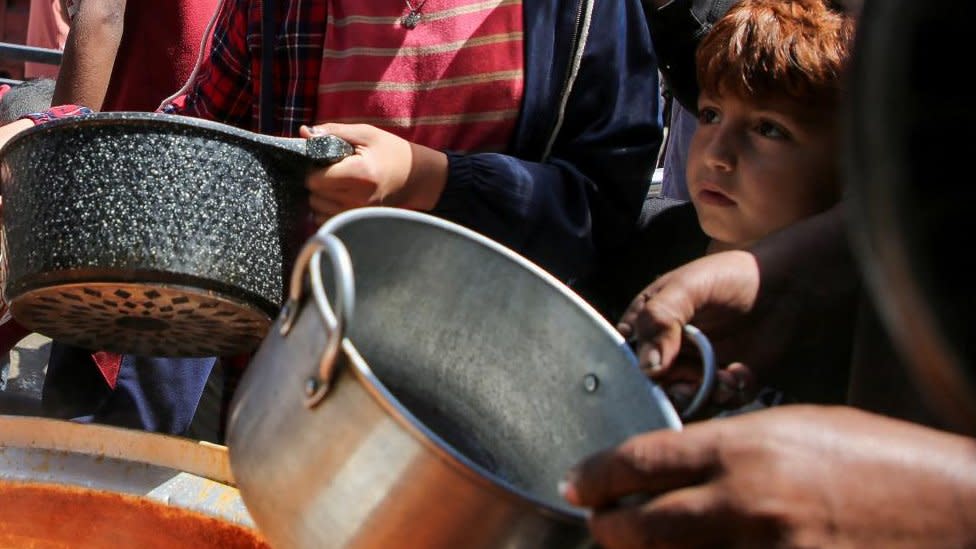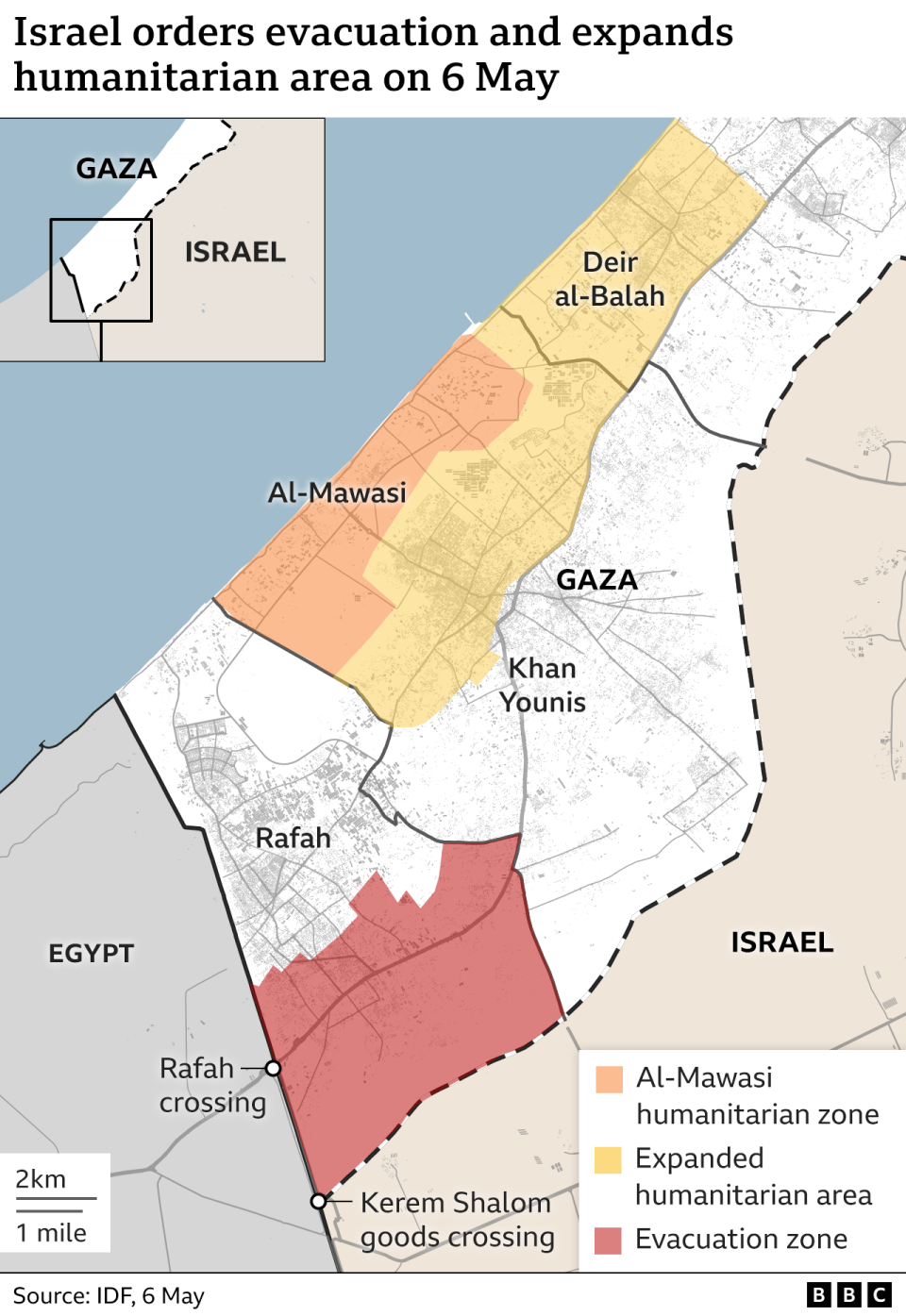Gaza war: UN hopes for new Western Erez aid crossing

The UN says it is hopeful a newly opened crossing from Israel to Gaza will lead to a sustainable flow of aid into the north of the territory.
Scott Anderson, deputy head of the Palestinian refugee agency, told the BBC he hoped the entry of 36 flour trucks on Sunday was a positive sign.
The flow of humanitarian aid into Gaza has been hampered by the war, with Israel and aid groups trading blaming.
Israel opened the Western Erez crossing point on Sunday.
Speaking to BBC Radio 4's Today programme, Mr Anderson said the refugee agency Unrwa hoped that a constant flow of aid would be established through the new crossing.
"We are very much hoping it is sustainable as it would allow us a way to get food and other needed supplies to the population that is in the north of the Wadi Gaza," he said, referring to a riverbed which spans the territory just south of Gaza City.
Food, water and other basic supplies are most scarce in the north, where Israel's operation against Hamas began after the group's deadly attack on 7 October, and where fighting has recently resumed.
Last week, the head of the UN's World Food Programme said displaced Palestinians there were experiencing a "full-blown famine".
Israel has long maintained that it is committed to facilitating deliveries of humanitarian aid into and within Gaza and has accused Hamas of stealing the aid designated for civilians.
In the south, where most Palestinians have sought refuge, the aid situation is worsening.
Despite warnings from international allies, last week Israel instructed Palestinians sheltering in the east of Rafah to evacuate so that it could begin what it called a "limited" operation to eliminate Hamas from the area.
Israel then drove tanks to the Rafah crossing, which had been the main entry point of aid via Egypt, and shut it down on the Palestinian side.
The other point of entry in the south, Kerem Shalom, was closed prior to that after four Israeli soldiers were killed by rockets launched from Rafah by Hamas, according to the Israeli military.
Israel says the crossing has since reopened, but it now requires aid convoys to navigate an "active combat zone", Mr Anderson said.
He said the UN needed a "fixed corridor" of access to Kerem Shalom to be established, which would need the agreement of both Hamas and Israel.
"We need all the parties to the conflict to agree to make sure the truck drivers and the UN staff undertaking this operation are safe," he said.
Part of the UN's operations in Gaza throughout the war has been to survey displaced Palestinians who are on the move, and track those who say they do not have access to food and water.
Unrwa is currently tracking some 370,000 Palestinians in Gaza, Mr Anderson said.
Hundreds of thousands of Palestinians have heeded Israel's warnings to evacuate eastern Rafah and have begun their journey to what Israel has called an "expanded humanitarian zone".
This includes al-Mawasi, a coastal area largely made up of sand dunes, and parts of Khan Younis, which only recently was the focus of Israel's operations in Gaza.
Mr Anderson said neither area had the infrastructure to support the masses seeking shelter.
In al-Mawasi, "everything people have access to, we have to truck in... which includes food, water, moving solid waste, so it's very much a makeshift camp," he said.
"People who are displacing to Khan Younis, it's very similar – there was infrastructure there, but that is still recovering from the Israeli operation that took place a few months ago."
Israel launched a military campaign in Gaza to destroy Hamas in response to the group's attack on southern Israel on 7 October, during which about 1,200 people were killed and 252 others were taken hostage, according to Israeli authorities.
More than 34,900 people have been killed in Gaza since then, according to the territory's Hamas-run health ministry.


